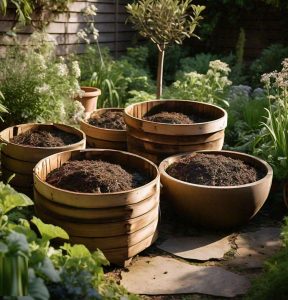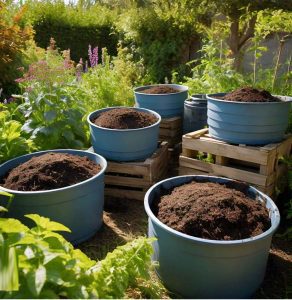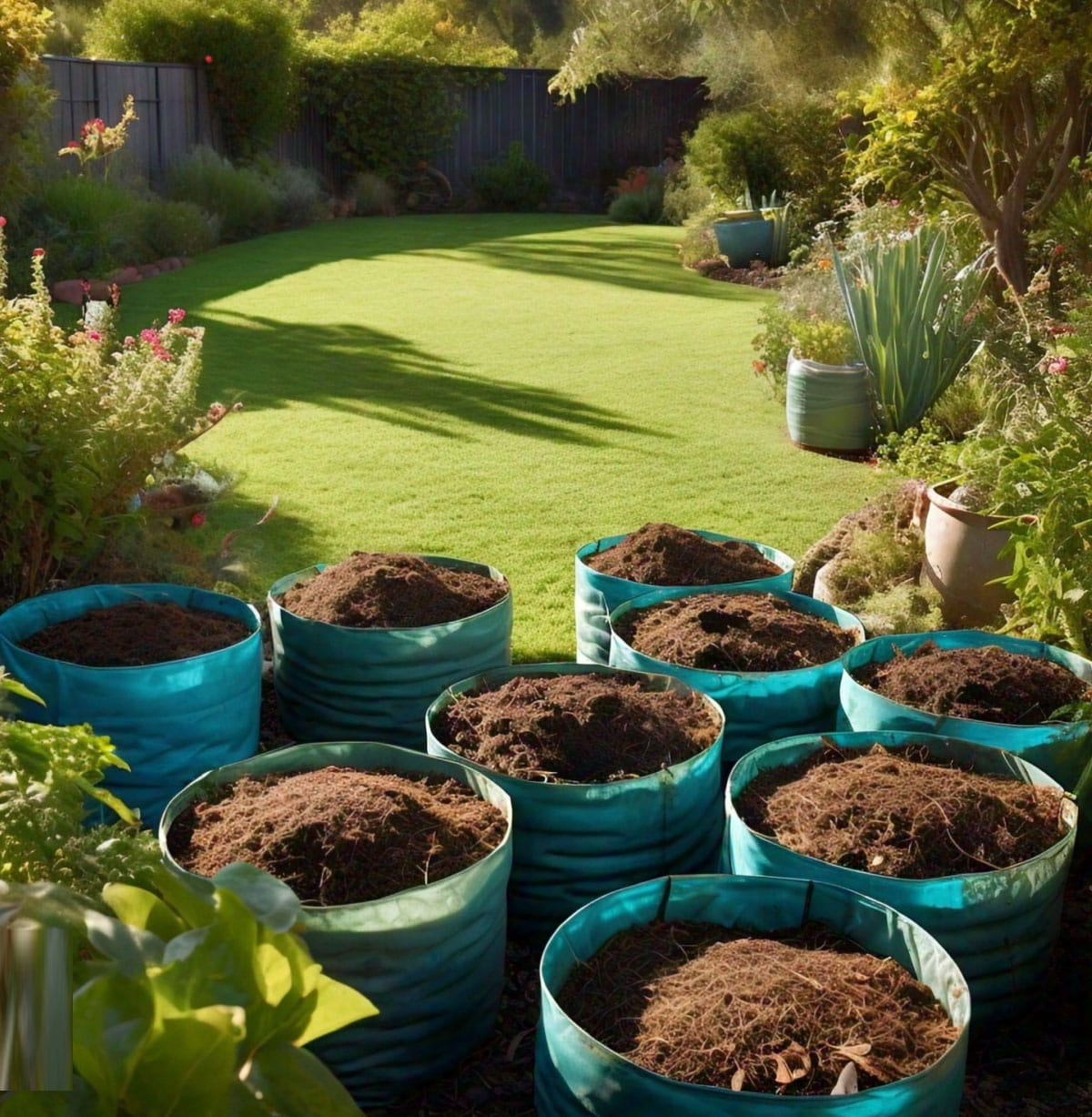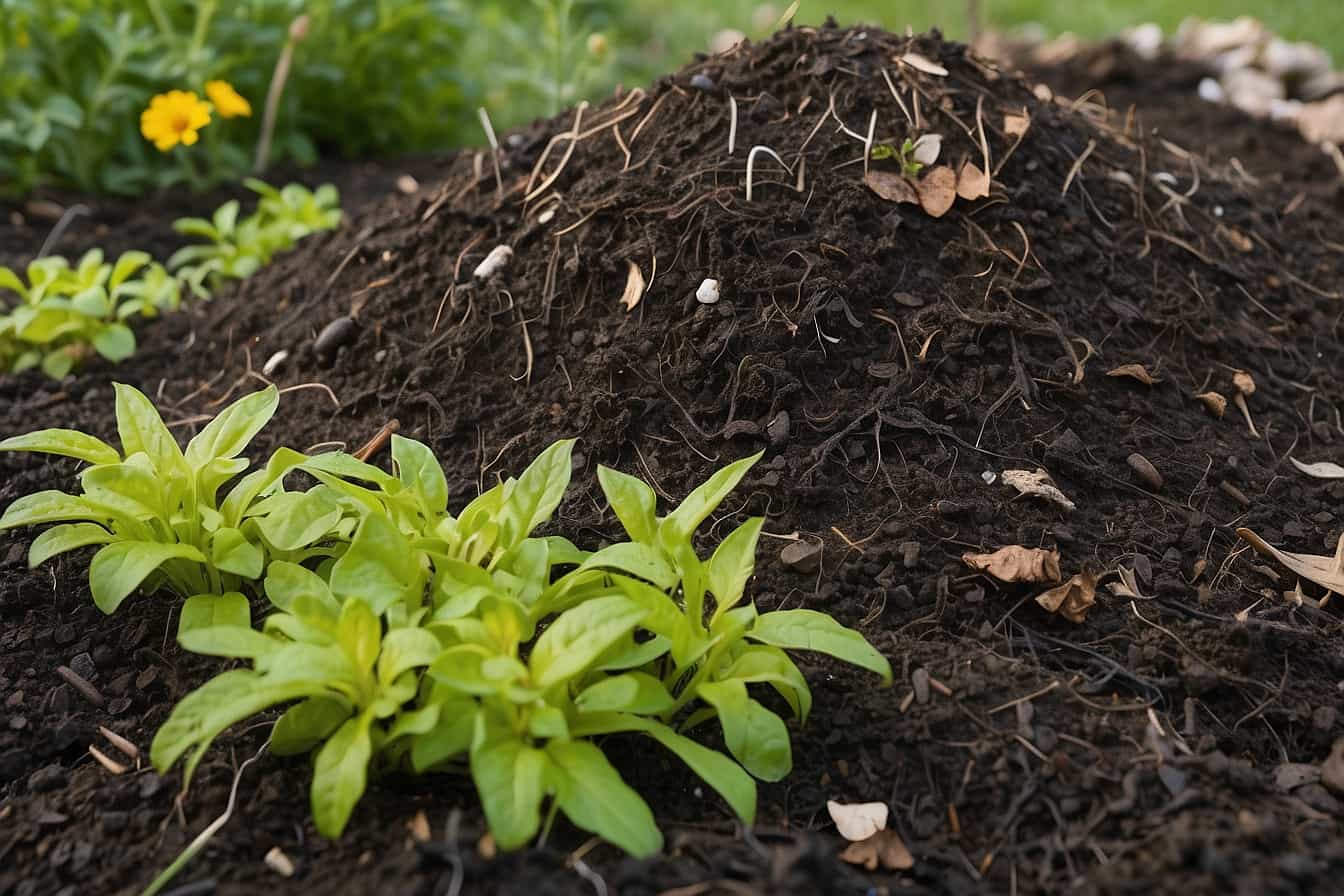Discover Easy Secrets of Odor-Free Compost in Containers
Compost in containers offers a multitude of benefits, making it an accessible and convenient option for those looking to reduce waste and improve soil health. One significant advantage is the ability to compost in small spaces such as balconies or patios, allowing apartment dwellers and urban residents to participate in sustainable practices. Additionally, compost in containers offers more control over the composting process, with the flexibility to adjust moisture levels, temperature, and carbon-to-nitrogen ratios according to specific needs.
Furthermore, compost in containers can help accelerate the decomposition process due to the concentrated nature of the materials within a confined space. This efficient breakdown of organic matter leads to quicker production of nutrient-rich compost that can be used to enhance soil fertility in gardens or potted plants. By utilizing containers for composting, individuals can easily incorporate eco-friendly practices into their daily lives without requiring extensive outdoor space or specialized equipment. It’s a practical and rewarding way to minimize waste while nurturing healthier soils for greener environments!
Choosing the right container for composting
When it comes to choosing the right container for composting, there are a few key factors to consider. First and foremost, size matters. Make sure to select a container that suits the amount of compostable material you generate regularly. A larger container may be more suitable for households with larger gardens or more food waste.
Secondly, ventilation is crucial in the composting process. Opt for a container that has adequate ventilation holes or an open design to allow oxygen flow. Without proper air circulation, your compost may become anaerobic and produce unpleasant odors.
Additionally, consider the material of the container itself. While plastic bins are common and cost-effective, they can be less environmentally friendly than alternatives like metal or wooden bins. Choose a material that aligns with your sustainability goals and fits well into your home or garden aesthetic. By taking these factors into account, you can set yourself up for successful and mindful composting practices!
Materials needed for successful compost in containers
When it comes to successful composting, choosing the right materials is key. Organic matter such as kitchen scraps, yard waste, and shredded paper provide essential nutrients for the compost pile to break down effectively. It’s important to maintain a balance between green materials high in nitrogen like fruit peels and grass clippings, and brown materials rich in carbon such as leaves and straw. This balance ensures proper decomposition and avoids unpleasant odors.
In addition to organic matter, a healthy compost pile also needs oxygen and moisture. Turning the pile regularly using a pitchfork or shovel helps aerate it, promoting the growth of beneficial microorganisms that break down the materials. Keeping the pile moist but not soggy is crucial for maintaining the ideal environment for decomposition. With these key ingredients in place, your compost pile will thrive and produce nutrient-rich humus ready to enhance your garden’s soil fertility.

Maintaining and troubleshooting compost in containers:
One common issue when maintaining a compost pile is the balance of green and brown materials. If your compost smells bad or doesn’t break down properly, it may be due to too much nitrogen-rich green material or not enough carbon-rich brown material. To troubleshoot this, try adding more dried leaves, newspaper, or cardboard to balance out the mix.
Another important aspect of compost maintenance is turning the pile regularly. Turning helps aerate the compost and speeds up decomposition. If your compost isn’t breaking down as quickly as it should, try turning it more frequently to introduce oxygen and distribute moisture evenly throughout the pile. Remember, a well-maintained composter will reward you with rich, nutrient-dense soil for your garden.
Tips for speeding up the composting process
One effective way to speed up the composting process is to ensure a good balance of green and brown materials. Green materials, such as kitchen scraps and grass clippings, provide nitrogen, while brown materials like leaves and straw offer carbon. By maintaining this balance, you create an ideal environment for the microbes that break down organic matter.
Another tip is to chop or shred your compost ingredients into smaller pieces. This increases the surface area for decomposition, allowing the microbes to work more efficiently. Additionally, turning your compost pile regularly helps aerate it and distribute moisture, which are both essential for speeding up decomposition. By following these tips and staying patient with your composting efforts, you’ll soon have nutrient-rich soil amendment ready for your garden!

Using compost from containers in gardening
Did you know that using compost from containers in gardening can significantly boost the health and growth of your plants? Compost in containers is full of nutrients and beneficial microorganisms that can help improve soil structure and moisture retention, leading to healthier plants with stronger roots. By incorporating compost in containers into your garden beds or pots, you are not only recycling kitchen scraps and yard waste but also creating a sustainable way to nourish your plants naturally.
One key advantage of using compost from containers is its versatility – you can easily customize the nutrient content by adjusting the ingredients used in the composting process. This allows you to tailor the compost to suit specific plant needs or soil deficiencies, providing a tailored solution for optimal plant growth. Additionally, compost in container tends to have fewer weed seeds compared to traditional garden compost, reducing the chances of weed infestation in your garden beds. So next time you empty out a container of finished compost, consider how it can benefit your garden as a valuable resource for healthy plant growth.
Conclusion:
In conclusion, adopting a sustainable and convenient composting method is not just beneficial for the environment, but also for our daily lives. By composting our food scraps and organic waste, we can significantly reduce the amount of waste that ends up in landfills, ultimately reducing carbon emissions and helping combat climate change. Additionally, incorporating composting into our routine can foster a greater sense of connection to nature and encourage more mindful consumption habits.
Furthermore, sustainable composting methods such as vermicomposting or bokashi fermentation offer innovative solutions for those living in urban areas or with limited space. These methods allow individuals to efficiently manage their organic waste indoors or on a small scale without the need for large outdoor compost bins. Embracing these alternative approaches to composting not only makes it more accessible but also opens up new possibilities for urban dwellers to actively engage in eco-friendly practices within their homes. In this way, sustainable composting becomes not just an environmental initiative but also a lifestyle choice that promotes mindfulness and responsibility towards the planet.




